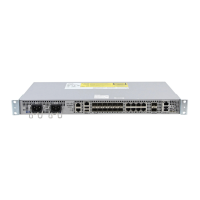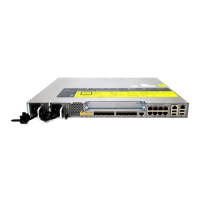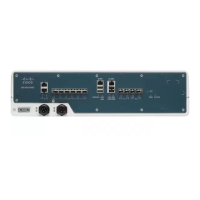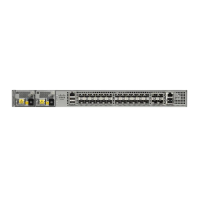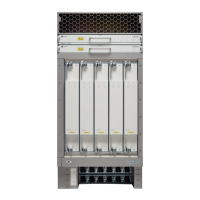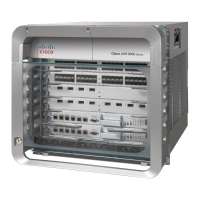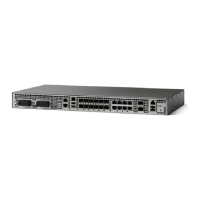Configuring CFM over EFP Interface with Cross Connect—Selective QinQ
Cross Connect
SUMMARY STEPS
1.
enable
2.
configure terminal
3.
interface gigabitethernet slot/subslot/port
4.
service instance id Ethernet [service-name]service instance id Ethernet [service-name]
5.
encapsulation dot1q {any|vlan-id [vlan-id [-vlan-id]]} second-dot1q {any |vlan-id [vlan-id [-vlan-id]]}
6.
xconnect peer-ip-address vc-id {encapsulation {l2tpv3 [manual] | mpls [manual]} | pw-class
pw-class-name }[pw-class pw-class-name] [sequencing {transmit|receive| both}]
7.
cfm mep domain domain-name [up|down] mpid mpid-value [cos cos-value]
DETAILED STEPS
PurposeCommand or Action
Enables privileged EXEC mode.enable
Step 1
Example:
Router> enable
•
Enter your password if prompted.
Enters global configuration mode.configure terminal
Example:
Router# configure terminal
Step 2
Specifies the Gigabit Ethernet interface to configure,
where:
interface gigabitethernet slot/subslot/port
Example:
Router(config)# interface Gi2/0/2
Step 3
slot/subslot/port—Specifies the location of the interface.
Creates a service instance (an instance of an EVC) on
an interface and sets the device into the config-if-srv
submode.
service instance id Ethernet [service-name]service instance
id Ethernet [service-name]
Example:
Router(config-if)# service instance 101 ethernet
Step 4
Configures the encapsulation. Defines the matching
criteria that maps the ingress dot1q, QinQ, or untagged
encapsulation dot1q {any|vlan-id [vlan-id [-vlan-id]]}
second-dot1q {any |vlan-id [vlan-id [-vlan-id]]}
Step 5
frames on an interface for the appropriate service
instance.
Example:
Router(config-if-srv)# encapsulation default
Carrier Ethernet Configuration Guide (Cisco ASR 920 Series)
221
CFM Configuration over EFP Interface with Cross Connect Feature
Configuring CFM over EFP Interface with Cross Connect—Selective QinQ Cross Connect
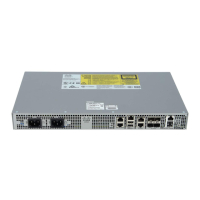
